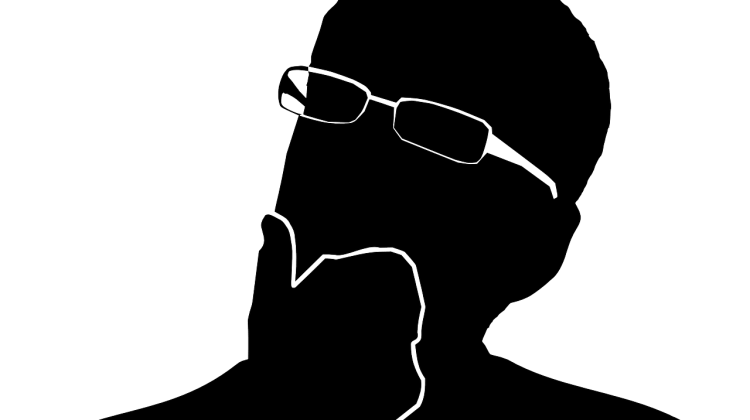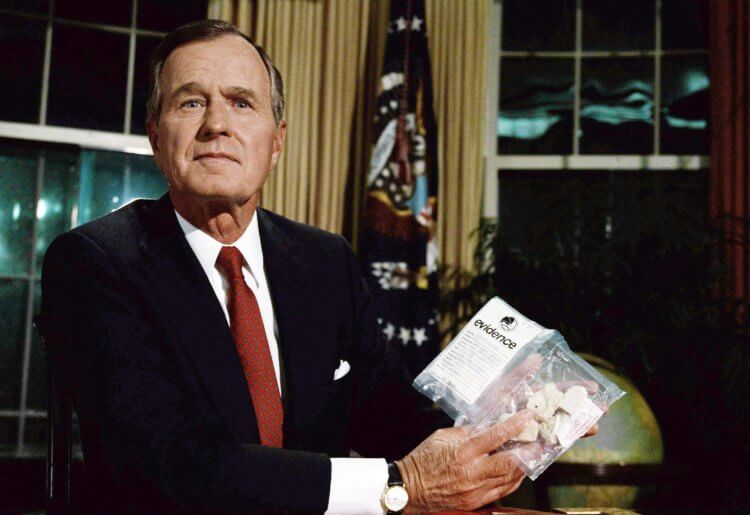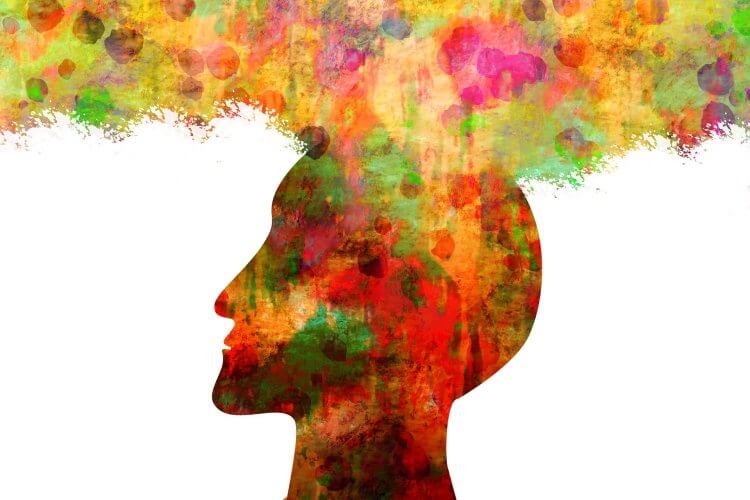
NOTE: This “In Retrospect….” interlude is a relevant interjection containing thought provoking retrospective analysis on the science of human behavior, psychology, and politics. If this chapter adversely disengages the reader from the flow of the story, it can be skipped or read later.
In the years proceeding the events of this epic, I was inundated with the popular refrains: “Why did you do this?”; “Didn’t you learn after going to prison the first time?”; “Did you learn your lesson?”.
“Did you learn your lesson?”
These are complicated questions, usually intended to be rhetorical, about which very few people put a lot of thought. In order to properly address these questions, it is important to evaluate facts surrounding this issue on a macroscopic level. The United States incarcerates the highest percent of its population than any other country in the world. This should be regarded as a shocking figure. The United States, leaders of the free world, stuffs more people in cages than any other country in the world. The rate of recidivism is prodigious, research showing figures of greater than seventy percent. Over seventy percent of the people who are incarcerated, will go back to prison. Do you think that Americans are inherently more evil than everyone else in the world, or is it possible that there is something profoundly wrong with the criminal justice system?
Ronald Reagan, George Bush Sr., George Bush Jr., and Bill Clinton’s biggest failures were the war on drugs and the war on crime. They used the war on drugs as an election and publicity strategy. You take an issue, make people afraid of it, and offer a solution to the problem. It is a time-tested publicity tactic that has been repeated many times before, i.e., McCarthyism. The War on Drugs and the War on Crime has locked the country into a strategy of punishment, deterrence, and intolerance. Based on instinct rather than evidence, Bush’s approach did little to alleviate any public health crisis of addiction, or halt the flow of drugs to American shores. Today, we remain trapped in this largely punitive approach, fomenting a drug war that harmed millions of Americans, creating criminals out of citizens, particularly in African American communities. In our zeal to correct what we believe to be problems of the past, we end up creating new problems for the future. The War on Drugs hemorrhages tax payer dollars, causes violence, mass incarceration, and unequivocally creates more problems than it solves.
Ronald Regan, George Bush Sr., George Bush Jr., and Bill Clinton’s biggest failures were the war on drugs and the war on crime.

We have seen the problems with drug laws before, first with Prohibition, and now marijuana. Prohibition caused as much, or more, violence and organized crime activity than drug gangs and cartels do today. Once Prohibition ended, all of the violence and organized crime associated with alcohol disappeared. Myth and stigma stemming from the 1950’s Reefer Madness impelled our nation to incarcerate non-violent marijuana offenders for five, ten, twenty years or more. It seems ridiculous and laughable today. Now, we have realized that marijuana is not dangerous, and it can be beneficial. Marijuana is soon to be legal in every state, it creates millions of jobs, and it yields millions in tax dollars. The same is true for testosterone. What did George Bush, Joe Biden, Mitch McConnell, and the rest of Congress know about steroids when they passed the Steroid Control Act of 1990, despite the DEA’s recommendation not to make anabolic steroids a controlled substance? I mean, look at them. Not a single member of Congress had any experience or real knowledge about testosterone and the fact that it is not harmful, but can be miraculously beneficial. Studies have now proven that testosterone and other anabolic steroids are not dangerous, especially when used in moderation. Testosterone has medical purpose, helps tens of millions of men throughout the country, would create millions of jobs, and drive hundreds of millions in tax revenue if legalized.
Digressing back to the question I am often asked; did I learn my lesson? Well, what lesson was I supposed to learn? That selling steroids was illegal and it could lead to incarceration? I knew that before I did it; so, no, I didn’t learn that lesson by being incarcerated. The answer to why I broke the law in the first place, and to why, when released from prison, I commenced committing the exact same crime that put me in prison in the first place, is shared by millions upon millions of people that have been released from confinement only to reoffend; I didn’t know what else to do.
Well, what lesson was I supposed to learn? That selling steroids was illegal and it could lead to incarceration? I knew that before I did it; so, no, I didn’t learn that lesson by being incarcerated.

The U.S. criminal justice system and non-violent drug offenders
There is a small portion of the United States’ prison population that have committed inherently evil acts, and need to be segregated from society, but this is only a small portion, and most offenders do not fit into the inherently evil category. Over half of the prison population in the United States are non-violent drug offenders. The criminal justice system is purely punitive, and assumes that people break the law because they are greedy, contumacious, sociopathic, and if they are punished, they will learn to follow the law. This is a completely inaccurate depiction of why most people break the law. Non-violent drug offenders are not malevolent people who intend to hurt others, nor do they intend to be recalcitrant malefactors. Most of them simply do not know what else to do. A myriad of environmental, educational, and systemic factors has left them not knowing or understanding how to create value and support themselves to become gainful members of society. The only measure non-violent drug offenders know to take in order to put food on the table, a roof over their head, and to take care of their family – is to sell drugs. Prison doesn’t fix that.
In order to mitigate the reoccurrence of criminal behavior, it is imperative for prisons to address the fact that offenders need help figuring out how the economy works, and how to prosper legally in society. Despite State and Federal claims that prisons offer education and vocational training, these programs are woefully mismanaged, utterly inadequate, and are not implemented as required to be successful. Therefore, if non-violent offenders go to prison because they didn’t know what else to do, and prison does nothing to change that, then, the same elements that caused the criminal behavior in the first instance are still in place; but worse, because ex-offenders have been ostracized from society for a long period of time and possess the concomitant felonies that prevent them from progressing and supporting themselves lawfully.
My steroid transformation
Another factor that led to my recidivism:
When I was young, I was very small and skinny. When I was thirteen, my peers began to chide me due to my diminutive stature. No one really paid attention to me; or respected me. In response, I began hitting the weights, and I never looked back. Although weightlifting helped, due to my sub-optimal genetics, I had to work twice as hard to get half the results of my peers. I still wasn’t defining myself amongst others the way I envisioned.
At twenty-three, I commenced a moderate anabolic steroid regimen of 1ml Sustanon per week, and 10mg of Dbol per day. In a five-week span, I lost fat and put on 32lbs of muscle mass, increasing my bench press by 100lbs in that very short timeframe. Everyone with which I came into contact began to show me deference and respect because of my new image. Everywhere I went, I was noticed and befriended. When I entered into a bar or a club, the crowd would part in front of me; and if I accidentally bumped into someone, they would turn, look at my massive stature… and apologize to me. Every summer of my college years I worked for a plumbing company. I loathed it, and was terrible at my job. One day my boss suddenly gave me a raise for no better reason than I stood before him looking stout from my steroid regimen.
I lived two different lives, in two different worlds. One before steroids, and one after. My life after steroids was so exalted and such a vastly better existence that I became passionate about steroids. I became an autodidact by assiduously researching my new found love. Later, I formerly studied the subject and tailored a degree in biochemistry around hormones and their effects.
People were inquiring as to how I changed my look and overall life so drastically. When I told them, they wanted help in procuring such effective supplements. I began providing some friends with steroids, and information on how to use them, as a favor, at first. When I saw how effective these supplements were for others, and how happy people were with my service, I began to develop an incipient and profound sense of purpose.
I lived two different lives, in two different worlds. One before steroids, and one after.

D.O.S.E. response
Humans evolved to be social creatures, and we evolved mechanisms to encourage pro social behavior. Whenever a human does something to help someone, our brains release the neurotransmitters: dopamine, oxytocin, serotonin, and endorphins (D.O.S.E.). The D.O.S.E. response is the feel-good reward for displaying hospitality and ensuring the survival of our species. When humans help someone, they are, in turn, shown respect and admiration for their help, which makes us produce D.O.S.E. and feel good. This is why people crave respect and admiration. The D.O.S.E. response, including endorphins, which are opiate proteins, tell our brains to continue the behavior that caused the D.O.S.E. production. In essence, we are supposed to become addicted to, and crave, the behavior that caused the production of these neurotransmitters. When humans do something that aids in their survival, or the survival of their species, they illicit a D.O.S.E response, and become addicted to that behavior. This is a healthy addiction. Opiates such as heroin, Oxycontin, or Percocet, mimic endorphins – as they are in the same drug class as endorphins – and bind to the same receptors as endorphins, which is why those drugs are so addictive. Becoming addicted to behaviors that aid in our survival is healthy and ensures the proliferation of our species. Another word we use for this concept is passion. We become passionate about helping people, which yields respect, admiration, and praise; all D.O.S.E. releasing mechanisms. Mammals have been evolving this mechanism for 100 million years.
When my clients’ euphoria, elation, and contentment manifested in the form of respect, admiration, and loyalty at the manner in which I was able to help them live better lives by providing them testosterone and other steroids, I experienced a D.O.S.E. rush like I had never experienced before. I became addicted to helping people in this manner. I worked hard to become well informed in this area, and God damn it, I finally found something at which I excelled. Whether it is drugs, steroids, or a better life, when a human ‘helps’ someone with something that they want, and respect and admiration are reciprocated, the ‘helper’ becomes passionate about ‘helping’. Evolution is blind to drug laws, or whether or not drugs are harmful in the long run, because drugs and drug laws have only existed for less than one-hundred years. Therefore, making laws against helping, providing, or selling things that people want – such as steroids or drugs – contravenes one-hundred million years of evolutionary impulse. Whether or not contemporary culture finds this immoral, is inconsequential. For example, humans want to have sex with an attractive female or male regardless of the consequences to their life; and many people do even when it causes problems. That is 100 million years of evolutionary impulse, and it cannot be controlled, even with the threat of five, ten, or twenty years in prison. When you add the fact that selling steroids or drugs can generate a copious quantity of money, another addictive factor, the impulse becomes even more impossible to control.
I was able to help clients live better lives by providing them testosterone and other steroids, I experienced a D.O.S.E. rush like I had never experienced before.

After being imprisoned for the second time, I have been asked a plethora of times; Was it worth it? I had always just shrugged my shoulders when people asked me that, perhaps because I was a little embarrassed of the real answer. I helped tens of thousands of people live a better life. I used to get multiple emails on a daily basis thanking me for what I did, and thanking me for making people’s lives better. I made millions of dollars. I lived in dominion and opulence. I built an empire. I built a legacy. Was it worth it? I think you may agree with me after reading this story… You are God damn right it was.
Next >>: Episode 01 (In the Beginning)
Memoirs of a Steroid Kingpin (Table of Contents)
Start reading from the beginning or browse the table of contents for summaries of each episode of “Memoirs of a Steroid Kingpin”.
Ryan’s Root’s real-life autobiographical story is a must-read account of his rise and fall as one of the largest anabolic steroid dealers on the Internet.
Don’t Miss the Next Installment
Register and subscribe to receive instant notifications of each new installment of “Memoirs of a Steroid Kingpin”.
“Memoirs of a Steroid Kingpin” is published online for the very first time in a serialized format exclusively for MESO-Rx readers. We plan on publishing 3 to 4 new episodes every week.Stay tuned and enjoy the ride!


Leave a Reply
You must be logged in to post a comment.